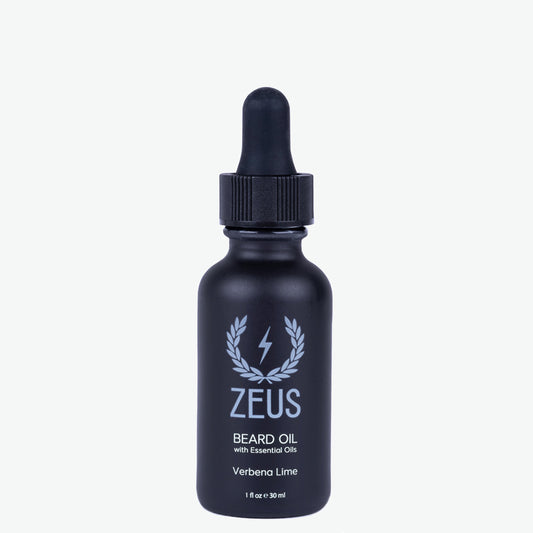
Why Men’s Mental Health Matters and Science-Backed Ways to Boost Your Mood
Share
Written By Shaylynn Marks
If you’re struggling with ongoing depression, anxiety, or thoughts of self-harm, please reach out to a licensed medical professional. This article is not a substitute for professional advice, but it’s here to offer support and small ways to care for yourself.
Most guys aren’t big on talking about stress. You bury it, muscle through the day, and convince yourself it’s no big deal, but eventually, that pressure builds. Over time, that mindset piles up stress, burnout and emotional exhaustion. In this guide, we will break down why men’s mental health matters, what to look for, and ways to boost your mood when you find yourself burned out with a messy house and a mountain of DoorDash charges piled on your card.

The Proof in the Pressure
Sometimes, the numbers just don’t lie—and we can’t ignore why men’s mental health matters:
- About 1 in 10 men report experiencing depression and anxiety.
- Men die by suicide four times more often than women.
-
Men are less likely to seek help or get diagnosed, even when symptoms are present.
Bringing more awareness and support is the first step to breaking that silence. The more conversations we have concerning men’s mental health, the more we will inevitably normalize it.

Why It’s So Hard to Talk About Mental Health
Cultural and social conditioning play a big role in why men stay quiet:
- Social programming: Men have historically found it more difficult to express their emotions due lack of social support and expectations from their peers/surroundings.
- Fear of judgement: Stigma around therapy and medications keeps many from reaching out, while also fearing being perceived as weak or vulnerable.
- Emotional awareness:Never learning to identify or express complex emotions, making it harder to describe what’s wrong.
Studies suggest that these factors can lead men to minimize symptoms or channel them into anger, risk-taking or isolation.

What Mental Health in Men Looks Like
Mental health issues don’t always look like sadness or tears. Common signs can include:
- Irritability or anger over small things
- Overworking or avoiding rest
- Turning to alcohol, excessive gaming, or constant distractions
- Trouble sleeping, fatigue, or loss of focus
The Mayo Clinic also notes that men often experience physical symptoms like headaches or digestive issues before recognizing emotional distress. Paying attention to these early warning signs can prevent deeper problems later on.

Practical Steps for Men to Support Their Mental Health
Improving your mental health doesn’t require a complete lifestyle overhaul. Small, evidence-based steps can make a big impact:
- Talk to someone: Social connection lowers cortisol levels and boosts dopamine, improving overall mood. A trusted friend, coworker, or family member is a good place to start.
- Move your body: Even short bursts of exercise can help regulate brain chemistry.
- Limit substances: Alcohol, caffeine, and screen time can increase anxiety and fatigue. Setting boundaries can make a difference.
- Use your resources: There’s tons of information out there that’s centered on men’s mental health. Unsure where to start? Man Therapy is a great online guide filled with information specific to men’s mental health—and don’t forget to read til the end to get even more of the top men’s mental health resources.
- Seek professional help: Cognitive Behavioral Therapy (CBT), medication, and group therapy have high success rates for treating anxiety and depression in men.

Mood Boosters for Men That Actually Work
Once you’ve covered the basics, you can build on that foundation by adding activities that recharge your mind and body. These suggestions are science-backed, real-world ways to boost your mood and resilience:
Mindfulness and Breathing
Practicing mindfulness or short guided activities helps reduce stress hormones and improve focus. Even five minutes of deep breathing or just being still can calm your nervous system.
Nature Time
Getting out of your head sometimes starts by just getting out of your house. Spending time outdoors: walking, hiking, biking, or even just sitting in the sun can lower cortisol and increase serotonin.
Creative Outlets
Painting, writing, woodworking, or even learning an instrument all activate the brain’s reward system. Creative work helps regulate emotions and give you a productive way to express yourself. And hey, women love a guy who can play a song or make something with his hands.
New Hobbies and Challenges
Try something new like fencing lessons, brewing your own beer, cooking, or tackling a home project. Learning skills builds confidence and gives you something to look forward to.
Social Connection
Join a pool league, sign up for a class, or volunteer in your community. Surrounding yourself with people who share your interests strengthens social bonds and helps combat loneliness.
The key is to focus less on distraction and more on reconnection. Doing things that engage your body, brain, or community can break you out of survival mode and remind you that you’re capable, curious, and human.
Men’s Mental Health: Resources and Information
If you need help or want to learn more about men’s mental health, here are a few trusted places to start:
988 Suicide and Crisis Lifeline (US): Call or text 988 for free, confidential support 24/7.
National Alliance on Mental Illness (NAMI): Offers education, advocacy, and local support groups.
Substance Abuse and Mental Health Association (SAMHSA) Treatment Locator
The Movember Foundation: A global leader in men’s mental health and suicide prevention.
Therapy platforms: Online options like BetterHelp or Talkspace make it easier to start therapy from home.

Prioritize Your Mental Health Today
This is your sign to stop suppressing everything, and you deserve to feel grounded and connected. Talking about your mental health doesn’t make you weak, but responsible and courageous. If things feel heavy, reach out. Our experiences connect us as humans, and you don’t have to get support alone. Build strength that lasts, and use these tools to get your mood boosted and back on track.







